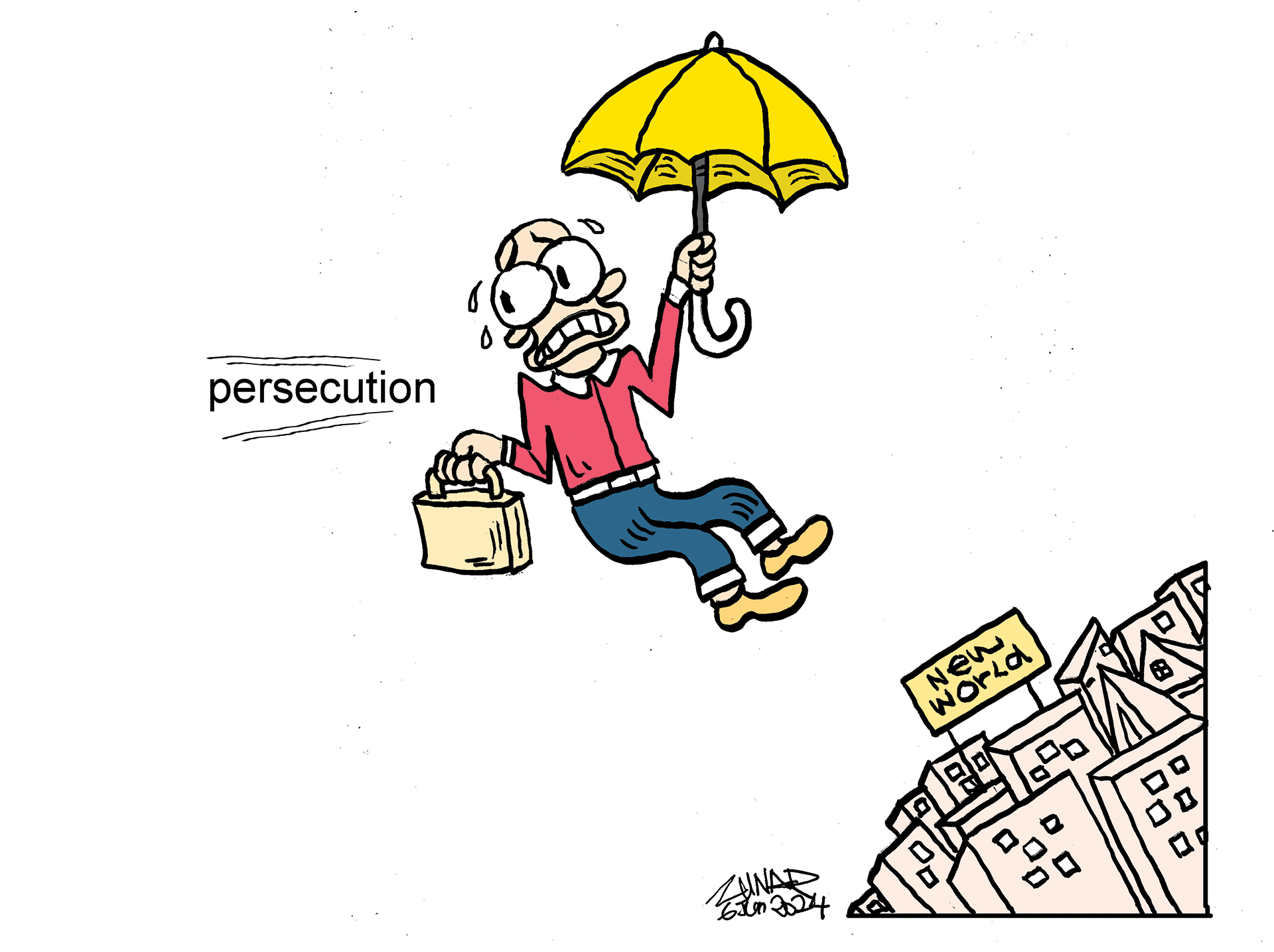
Hong Kong
Hong Kong
Hong Kong
From Hong Kong to Germany
From Hong Kong to Germany
From Hong Kong to Germany
By Ray Wong Toi-yeung
By Ray Wong Toi-yeung
By Ray Wong Toi-yeung

Hong Kong
From Hong Kong to Germany
By Ray Wong Toi-yeung
“My Battle for Human Rights.”

VITA
Ray Wong was born and raised in Hong Kong and has been actively involved in grassroots activism from a young age. In 2015, Ray founded the political group "Hong Kong Indigenous", whose slogan "Liberate Hong Kong, Revolution of our times" became the motto of the 2019 protests. During his time in Hong Kong, he was arrested multiple times for his activism and charged with "incitement to riot", a charge that can carry a sentence of up to ten years. Ray fled Hong Kong in 2017 and was granted asylum in Germany. Since then, he lives and studies in Göttingen. Ray Wong is involved in multiple organizations: He is an advisor to Hong Kong Watch, as well as a co-founder and editorial board member of the first Hong Kong diaspora magazine, Flow HK. In 2022, he co-founded "Freiheit für Hongkong e.V.", an organization that plays an important role in Germany in raising awareness and engaging with policymakers.
Reflecting on a Journey
"Destination: Berlin-Schönefeld, Germany", it says on an information board. As I sit at the gate, all the events that have led me to this point reappear before my inner eye: the suffocating tear gas, the unbearable burns from pepper spray, the pain from police brutality, the feeling of injustice as I stood in court, the hope I saw in people's eyes, and the terror against my family and me. In May 2018, I was in a German refugee camp. That was also the place where I received the letter from the German authorities informing me that my asylum application had been approved. This made me the first ever Hong Kong refugee in a European country to be granted asylum due to political persecution. My refuge in Germany did not mark the end of my activism in the fight for human rights and freedom, it was rather a new beginning. The reason for my protest against the repressive regime of the Chinese Communist Party (CCP) is simple and personal: I love my hometown, Hong Kong, very much. This city has made it possible for me to become who I want to be - as long as my endeavours do not infringe on the rights and freedoms of other people. What makes us human is the ability to decide what and who we are, and that is only possible if our human rights are guaranteed. The fight for human rights is a fight for humanity. In the eyes of authoritarian regimes, however, humanity is worth much less than their quest for power.
Termite Policy in Hong Kong
To extend their power and control in my home, the harbour city of Hong Kong, the Chinese government began its insidious campaign soon after the founding of the People's Republic of China. In the years leading up to the handover of power, the CCP gradually expanded its influence in Hong Kong in all areas of society, from businesses to the media, and from civil society to the government level. This policy, which some observers in Hong Kong and Taiwan refer to as "termite policy" - akin to termites slowly gnawing away at a structure until it collapses - helped the CCP gain a foothold in the city, even before Hong Kong gained sovereignty.
The process of eroding the foundations of freedom and democracy in Hong Kong accelerated after 1997. Almost 20 years later, in 2019, when Beijing dared to further consolidate its power by introducing the Extradition Law, the people rose and fought fearlessly. Unfortunately, it was already too late. The termite policy had paid off; the foundation of the structure that supported our freedoms and autonomy was eroded. The supposedly autonomous government was run by Beijing's puppets; most media outlets were either neutralized or co-opted; key businesses became dependent on the Chinese market and money; a network of satellite organizations was developed to promote Beijing's interests in all possible areas. Beijing's 2020 National Security Law and the legislation under Article 23 in 2024 were the final nudges toppling a tree whose roots had been eaten away by termites. These laws manifested the death of a once-free city.

Beyond Hong Kong
Hong Kong is not the only place where we have witnessed the CCP's erosion of human rights and democracy. Traces of the CCP's termite policies have also been seen in Taiwan, Australia, the United States, and Europe – and are thus often closer to home than one might think. The recent arrests of Chinese spies operating in Germany have shown that the Chinese termites are already active beneath the surface. Even more shocking is the case of Guo Jian, an assistant to MEP Maximilian Krah, the leading candidate of the far-right German Alternative for Germany party (AFD). Guo had infiltrated not only a German political party, which itself poses a threat to German democracy but also the Chinese dissident circle, jeopardizing the safety of Chinese freedom fighters living abroad.
Having painfully experienced the effectiveness of the CCP's termite policy, most activists in Hong Kong have been sensitized to potential Chinese infiltration attempts. The Hong Kong diaspora could offer this sensitivity to detecting Chinese termites to support our host countries. We could warn the democratic world of potential dangers emanating from the communist regime as soon as we realize them. Exposing the CCP's covert penetration campaigns is also one of my priorities in my new home country - Germany. Due to decades of globalization and the infamous "change through trade" policy, Germany has developed a complicated and intertwined relationship with China. Co-operation occurs at all levels, from the federal level to the municipal level, and in almost all fields, from business to science. The diverse and multi-layered relationship with China provides opportunities for mutual benefit but also makes it easier for Chinese termites to infiltrate and begin their stealthy, insidious work.
A Hidden Threat and Hopeful Mission
One of the often overlooked areas is the relations with China that take place at local levels. When I learned about the structure of Germany’s federal system, my intuition immediately drove me to investigate the subnational diplomatic relationships with China, where I found a significant number of collaborations are taking place. The more I dug into the subject, the stronger my sense was telling me that city partnerships might be a critical juncture where China could build up a foothold in Germany. Yet, there was little discussion nor policy to address this potential risk. Thus, my organization, Freiheit für Hongkong, decided to conduct a comprehensive study on exploring German Chinese subnational diplomacy. This study is just one example of my hopeful mission: to protect my new home from China's termite policy and its oppressive effects.
Hong Kong
